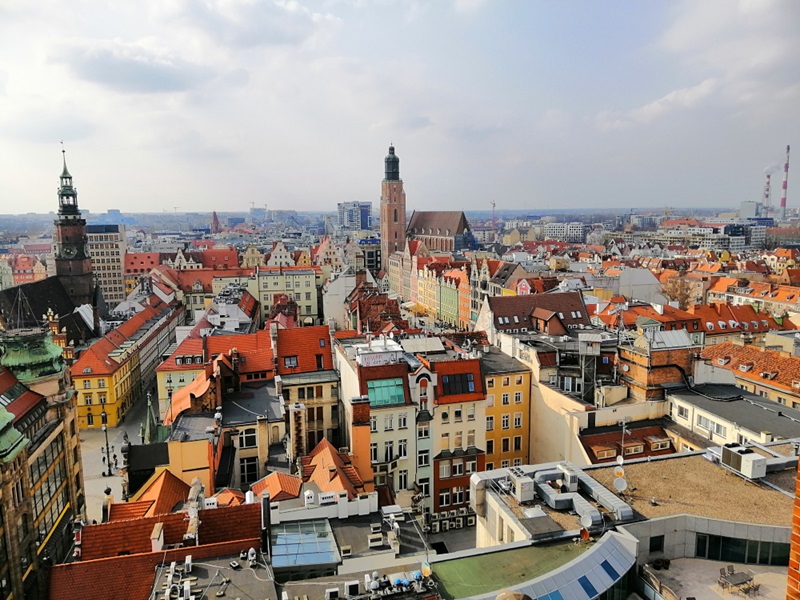Poland modifies construction regulations to address excessive and problematic housing development.
Poland’s government has approved changes to construction laws aimed at curbing practices that have resulted in many new developments containing small apartments crammed closely together, often with little natural light, privacy and green space.
Such practices, through which developers try to maximise the number of apartments on a given plot, have come to be known colloquially in Poland as patodeweloperka (a portmanteau combining the Polish words for “pathological” and “development”).
The new rules, which include increasing the distance between blocks on neighbouring plots and setting requirements for playgrounds and green spaces, will come into force in April 2024.
The changes were announced in January, but due to the need for technical notification to the European Commission, they were only approved now, said Development Minister Waldermar Buda at a press conference today. He noted that the commission has not made any comments on Poland’s proposals.
The first change is to increase the distance between a building and the border of a plot from three metres (or four for walls without windows and doors) to five metres for a building of more than four storeys.
“If we add [an extra] metre on one side and a metre on the other side it gives us an extra two metres between the buildings…giving us a visible change,” said Buda.
The changes also target the phenomenon of so-called “microapartments” in which units smaller than the 25 square metres required under Polish law for residential properties are sold as commercial units while being advertised as rental investments.
The amended law will now prohibit the construction of commercial units smaller than 25 square metres unless they are built on the ground or first floor with street access. The regulations will not apply to collective accommodation buildings such as hotels or guesthouses.
The change was welcomed by urban activist Janek Śpiewak, who first coined the term patodeweloperka and who was invited to speak during the development ministry’s conference. “26 October marked the end of microapartments,” he later announced on social media.
The new building regulations will also impose stricter sound insulation requirements for both apartments and single-family homes; limit to a maximum of 6% the number of parking spaces that can be built near windows; and require partitions at least 2.2 metres high between connected balconies.
Developers will also be required to create children’s playgrounds in buildings and clusters of buildings with more than 20 apartments. The size of the playground will depend on the number of dwellings, with playgrounds of 20 to 50 square metres for complexes of up to 100 apartments.
Developments with more than 300 dwellings will have to have a playground of at least 200 square metres.
Additionally, the new rules will oblige the developer to designate a space of at least 15 square metres for the storage of bicycles and strollers.
The ministry also wants to curb the use of concrete in urban design at the expense of green spaces – a trend which has been labelled betonoza (“concretitis”) by critics.
The new law will require publicly accessible squares of over 1,000 square metres to consist of at least 20% biologically active area.

